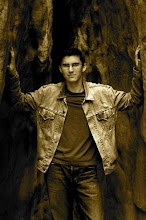Some say the world will end in fire,
Some say in ice.
From what I’ve tasted of desire,
I hold with those who favor fire.
But if it had to perish twice,
I think I know enough of hate
To say that for destruction ice
Is also great
And would suffice.
- Robert Frost “Fire & Ice”
The world is a fine place, and worth fighting for.
- Ernest Hemingway
It would be tempting to dedicate my entire review of The Road to Viggo Mortensen’s performance. In this movie, Viggo Mortensen reminds us that he’s one of the best actors currently working in Hollywood. Mortensen received an Oscar nomination for his 2007 performance in Eastern Promises. I have no doubt he’ll be nominated again this year.
The reason it’s easy to analyze The Road only in terms of Viggo Mortensen’s acting is not just because he delivers an incredible performance, but because the entire film seems so carefully designed to keep our focus on him. In The Road, Mortensen plays “The Man,” a father trying to keep himself and his eight year-old son alive in a bleak, post-apocalyptic world. The two of them inhabit a planet wrecked by global pollution, earthquakes, wildfires, crop failure, starvation, and cannibalism. These things, however, are of secondary importance in The Road. They’re just the conditions, the backdrop for the story.
The Road is a postapocalyptic movie, but I guarantee you that you’ve never seen an postapocalyptic movie like this before. There are no prophetic messages or political warnings about nuclear warfare, environmental pollution, or cultural decadence. In fact, the film never even takes the time to show or explain the disaster(s) responsible for this nightmare. It alternates between beautiful, bleak, and harrowing images of a dying world, but it never allows us to revel in the apocalyptic grandeur movies like 28 Days Later and I Am Legend love. Every shot feels as if it were carefully constructed to serve a purpose in the movie. This is definitely a film without excess; it establishes itself with subtleties and nuances. Like director John Hillcoat’s previous film The Proposition (which I just watched), this is a “quiet” movie.
Granted, there’s plenty of violence and horror. This movie shows us dreadful things, things I’m not sure I ever wanted to see or imagine. However, though situations in the movie are reminiscent of The Texas Chainsaw Massacre and Deliverance, this film never gives itself over to violence or terror. It has action, but it isn’t an action movie. It’s horrific, but it’s not a horror movie.
Ultimately, The Road is a story about a relationship - a relationship between a father and son at the end of the world. However, this relationship transcends simple parental dynamics. The Man isn’t just the Boy’s father. He’s his guardian and mentor. He doesn’t just want to help him survive; he wants to instill him with values that are in danger of being completely lost in this nightmarish world. The Man needs the Boy just as much as the Boy needs him. The Man’s son is his last chance for hope and beauty.
The Road is based on Cormac McCarthy’s prize-winning 2006 novel. Literary critic Harold Bloom considers McCarthy to be the greatest living American author, ranking him with Ernest Hemingway and William Faulkner. McCarthy has Faulkner’s interest in characters and relationships, and like Hemingway he is concerned with violence and nihilism. His works are bleak and violent, governed by a sort of “ecclesiastical” despair. For me, the film walks a fine line between nihilistic despair and hard-earned hope. Some will say it veers into nihilism; others will say it affirms life. It's hard to say which view is correct. Like the Coen Brothers' adaptation of No Country For Old Men, The Road has an ambiguous ending. The final scene will leave many feeling inspired, while others will be bitterly depressed.
However, while its philosophical message might be obscure, The Road makes its "worldview" clear:
The word is a sad, beautiful place, and it requires a great deal of courage and love to live in it.

No comments:
Post a Comment